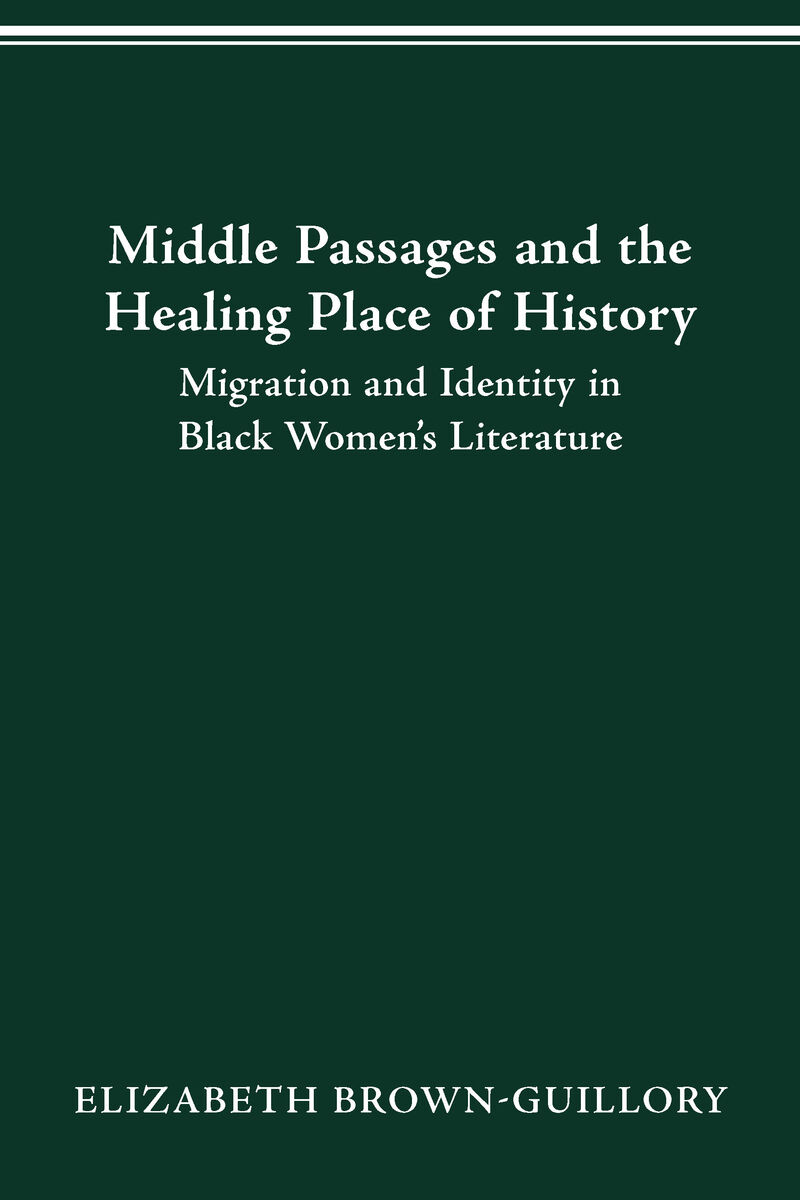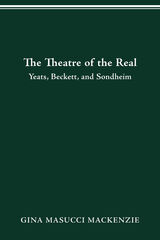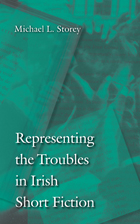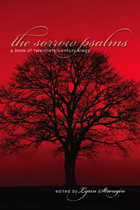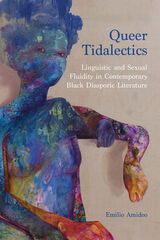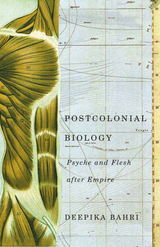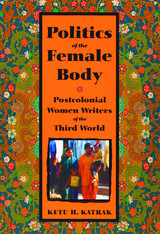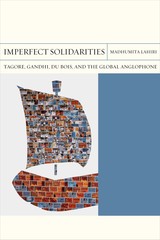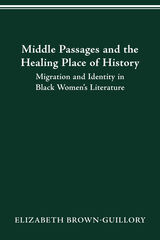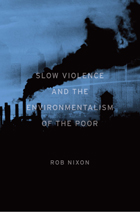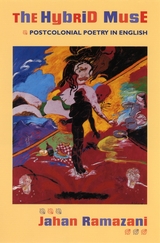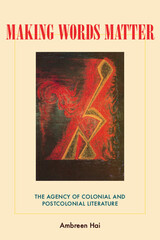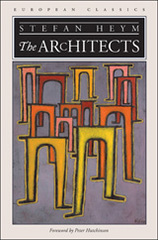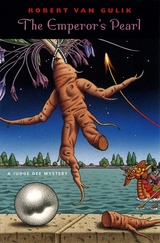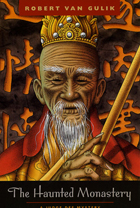MIDDLE PASSAGES AND THE HEALING PLACE OF HISTORY: MIGRATION AND IDENTITY IN BLACK WOMEN'S LITERATURE
The Ohio State University Press, 2006
Cloth: 978-0-8142-1038-3 | Paper: 978-0-8142-5712-8 | eISBN: 978-0-8142-7863-5 (individual) | eISBN: 978-0-8142-7234-3 (institutional)
Library of Congress Classification PR9080.5.M54 2006
Dewey Decimal Classification 820.992870917124
Cloth: 978-0-8142-1038-3 | Paper: 978-0-8142-5712-8 | eISBN: 978-0-8142-7863-5 (individual) | eISBN: 978-0-8142-7234-3 (institutional)
Library of Congress Classification PR9080.5.M54 2006
Dewey Decimal Classification 820.992870917124
ABOUT THIS BOOK | AUTHOR BIOGRAPHY | REVIEWS | TOC
ABOUT THIS BOOK
Middle Passages and the Healing Place of History: Migration and Identity in Black Women’s Literature brings together a series of essays addressing black women’s fragmented identities and quests for wholeness. The individual essays concern culturally specific experiences of blacks in select African countries, England, the Caribbean, the United States, and Canada. They examine identity struggles by establishing the Middle Passage as the first site of identity rupture and the subsequent break from cultural and historical moorings. In most cases, the authors themselves have migrated from their places of origin to new spaces that present challenges. Their narratives replicate the displacement engendered by their own experiences of living with the complexities of diasporic existence. Their female characters, many of whom participate in multiple border crossings, work to define themselves within a hostile environment. In nearly every essay, the female characters struggle against multiple yokes of oppression, giving voice to what it means to be black, female, poor, old, and alone. The subjects’ migrations and journeys are analyzed as attempts to heal the “displacement,” both physical and psychological, that results from dislocation and relocation from the homeland, imagined variously as Africa.
This volume reveals that black women across the globe share a common ground fraught with struggles, but the narratives bear out that these women are not easily divided and that they stand upon each other’s shoulders dispensing healing balms. Black women’s history and herstory commingle; the trauma that ensued when Africans were loaded onto ships in chains continues to haunt black women, and men, too, wherever they find themselves in this present moment of the Diaspora.
This volume reveals that black women across the globe share a common ground fraught with struggles, but the narratives bear out that these women are not easily divided and that they stand upon each other’s shoulders dispensing healing balms. Black women’s history and herstory commingle; the trauma that ensued when Africans were loaded onto ships in chains continues to haunt black women, and men, too, wherever they find themselves in this present moment of the Diaspora.
See other books on: Black authors | English-speaking countries | Feminist | Identity (Psychology) in literature | Women in literature
See other titles from The Ohio State University Press
